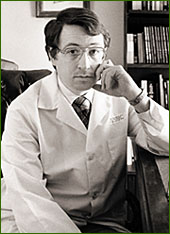|
| ALAN STOUDEMIRE AWARD RECIPIENTS |
| 2024 |
David Fipps, DO
ACLP Case Conference Webinar Series |
| 2023 |
Omar Mirza, DO
Harlem Hospital NYC Health + Hospitals |
| 2022 |
Sarah Nagle-Yang, MD
University of Colorado Medicine |
| 2021 |
Scott Simpson, MPH, MD
Denver Health Medical Center |
| 2018 |
Sanjeev Sockalingham, MD, MHPE, FACLP, FRCPC
Medical Psychiatry Alliance Education Program, University of Toronto |
| 2017 |
Robert McCarron, DO
UC Davis Train New Trainers (TNT) Primary Care Psychiatry (PCP) Fellowship |
| 2016 |
Anna Ratzliff, MD, PhD
University of Washington Integrated Care Pathway: Psychiatry in Medical Settings |
| 2015 |
No award |
| 2014 |
No award |
| 2013 |
J. Michael Bostwick, MD, FACLP
Disruptions in Development: A Pioneering Course for First-year Medical Students Taught at the Psychosomatic Interface |
| 2012 |
Gary J. Gala, MD, FACS
Crossing the Blood Brain Barrier: An Experiment in Interdisciplinary Research |
| 2011 |
Pamela Diefenbach, MD, FACLP
Educating Multiple Disciplines of Trainees in Primary Care Clinics |
| 2010 |
Philip Bialer, MD, FACLP
MSKCC Comskil [communication skills] Curriculum |
| 2009 |
Philip R. Muskin, MD, FACLP
A Tool for Assessment of Consultation-Liaison Trainees: Train the Trainer |
| 2008 |
Rebecca W. Brendel, MD, JD
“Team 5” at Massachusetts General Hospital |
| 2007 |
Per Fink, MD, FACLP
The TERM — An Advanced Educational Program for Primary Care Physicians in the Treatment of Functional Somatic Symptoms |
| 2006 |
Robert Schneider, MD
Virginia Commonwealth University: A Unique Approach to Teaching Psychiatry to Nonpsychiatric Physicians Through a Special Curriculum that Incorporats the Way Internists Think |
| 2005 |
No award |
| 2004 |
Theodore A. Stern, MD, FACLP
Avery D. Weisman, MD Psychiatric Consultation Service of Massachusetts General Hospital |
| 2003 |
Nehama Dresner, MD, FACLP, Program Director
Women’s Mental Health Rotation for Obstetrics/Gynecology Residents at Northwestern University Feinberg School of Medicine |
| 2002 |
Donald L. Rosenstein, MD, FACLP, Program Director
NIMH Program in Psychiatric Research Bioethics |
| 2001 |
Joseph S. Weiner, MD, PhD, Program Director
Program in the Doctor-Patient Relationship at Long Island Jewish Medical Center |

